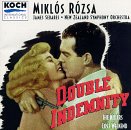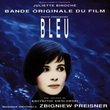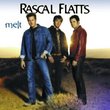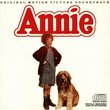| All Artists: Miklos Rozsa, Sedares, New Zealand Sym Orch Title: Double Indemnity / Killers / Lost Weekend Members Wishing: 0 Total Copies: 0 Label: Koch Int'l Classics Release Date: 2/18/1997 Genres: Special Interest, Pop, Soundtracks Style: Experimental Music Number of Discs: 1 SwapaCD Credits: 1 UPC: 099923737520 |
Search - Miklos Rozsa, Sedares, New Zealand Sym Orch :: Double Indemnity / Killers / Lost Weekend
 | Miklos Rozsa, Sedares, New Zealand Sym Orch Double Indemnity / Killers / Lost Weekend Genres: Special Interest, Pop, Soundtracks
|
Larger Image |
CD DetailsSimilarly Requested CDs
|
CD ReviewsThree Scores for Films Noirs by Miklos Rozsa Avram Hern | Los Angeles | 05/23/2001 (3 out of 5 stars) "Though Koch International's commitment to record the complete concert oeuvre -- and numerous landmark film scores -- of the great 20th Century composer Miklos Rozsa is significant and more than welcome, a number of the recordings have fallen short of perfection, or even adequacy. "El Cid," surely was one of the disappointments, as it contained far fewer previously released cues than had been hoped for by admirers of what is certainly one of the most glorious film scores ever written. "Double Indeminty"-"The Lost Weekend"-"The Killers" is almost as great a failure on the part of Koch for three reasons. One: while "Double Indemnity" is a sort of "proto-noir", and "The Killers" certainly one, "The Lost Weekend" does not fall into that much-loved category of hard-boiled detectives and/or femmes fatales and the themes of incorruptibility and personal honor in a corrupt, shadowy world. Perhaps this album's theme should've been a celebration of Rozsa's 1940s collaborations with director Billy Wilder (which stretched into the 1970s and '80s with "The Private Life of Sherlock Holmes" and "Fedora"), substituting "Five Graves to Cairo" for "The Killers." Two: Maestro Sedares, like many other conductors recreating classic films scores(the music's composers often included), has conducted lugubriously, trying to wring every last bit of orchestral color from the music at the expense of its original drive and dramatic intention (contrast this with the splendid pacing of Bruce Broughton's conducting in Intrada Records' reconstructed recordings of Rozsa's "Ivanhoe," "Julius Caesar" and Bernard Herrmann's "Jason and the Argonauts," or William T. Stromberg's scrupulous adherence to pacing in his Marco Polo series of classic film scores. Three: Perhaps most egregious is the substandard engineering of this recording -- inexcusable in this 24-bit digital day and age -- with the higher sonic frequencies largely absent from this woolly-sounding CD. Re-equalization is possible with the right equipment, but the engineers at Koch should not have forced that step on the disc's unwitting buyers. Still, these are three of Rozsa's most striking scores from what he termed his "black pictures" period of the 1940's, with Double Indemnity's" relentless prelude one of the most chilling compositions ever penned by the Hungarian composer. (Probably the film score closest in style to the composer's concert music, it was derided as "Carnegie Hall music" by Paramount Studios' conservative Music director, a man who felt that all film music should be of the syrupy pseudo-Rachmaninov school). For those who love Rozsa's music or appreciate the three scores' place in film history, however, this remains a worthwhile purchase, as long as potential buyers are made aware of the recording's obvious limitatons."
|

 Track Listings (9) - Disc #1
Track Listings (9) - Disc #1




![Away From The Sun [Limited Edition w/ Bonus DVD]](https://nationalbookswap.com/cd//m/36/6636/616636.jpg)



